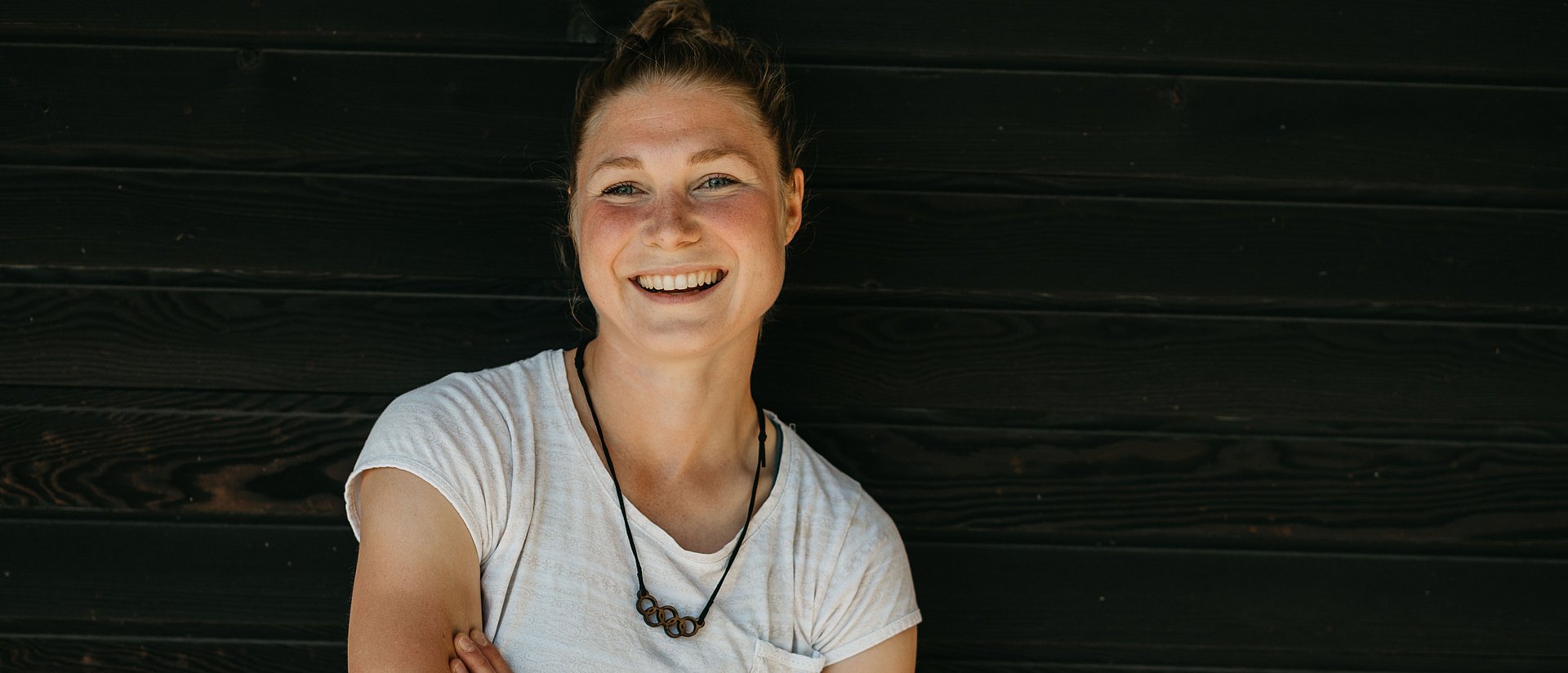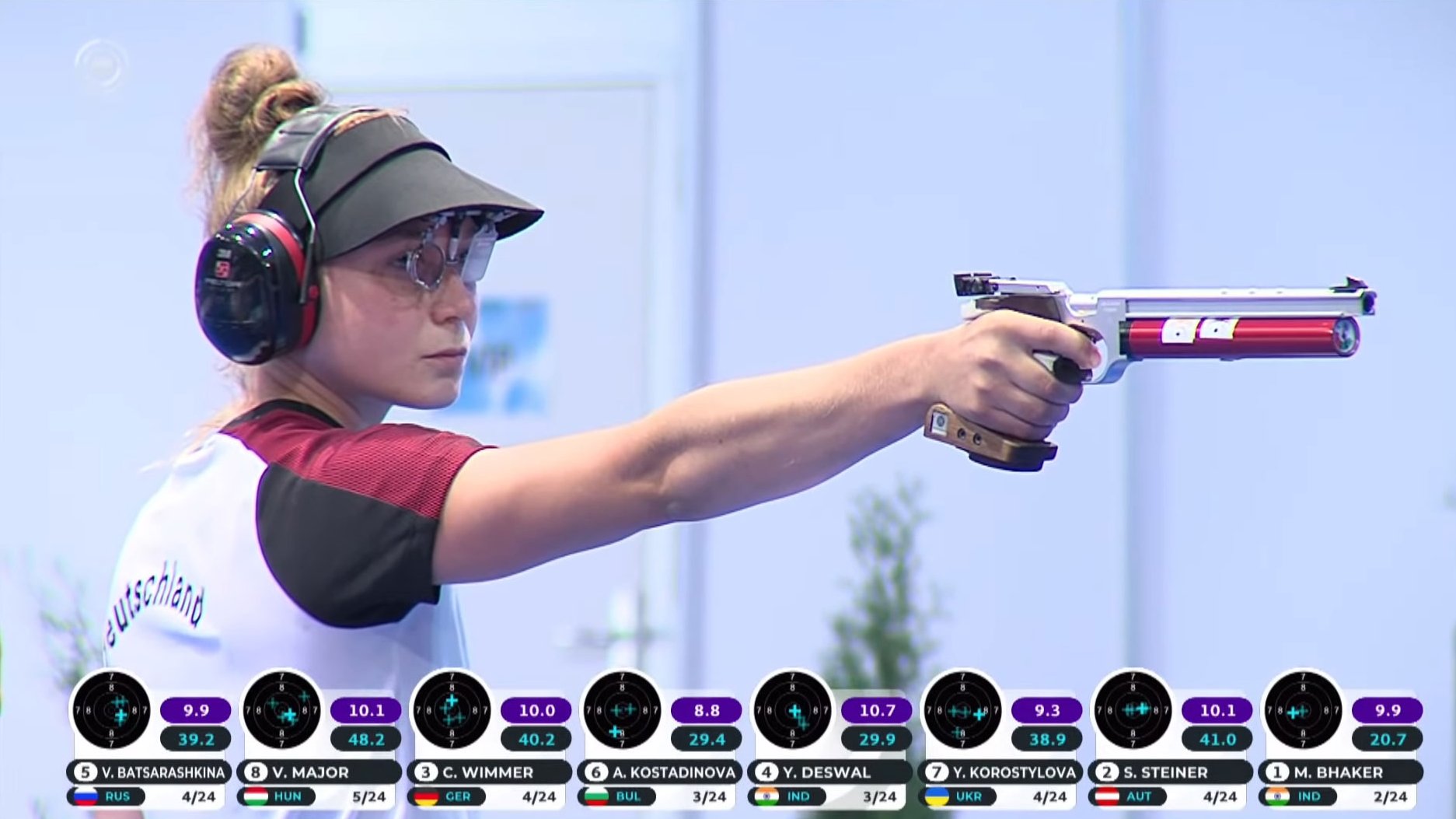Sport shooter Carina Wimmer is headed for the Olympic Games in Tokyo:
“If it wasn’t for Covid, I wouldn’t be going to the Olympics”

Have the past few weeks been an emotional roller coaster?
To stay motivated I had to convince myself that Tokyo would be happening and that I needed to train for it. For a long time it was uncertain whether the European Championships in Croatia would even take place. And I practically had to compete there to make it to the Olympics. But as an athlete I can’t just say: Let’s see whether this competition happens when the time comes. If I do, I’m dealing with all kinds of uncertainties while I’m training.
But then you managed to handle this uncertainty with a certain sense of optimism.
Well, a few things got moved around. In March 2020 I would have traveled to my first World Cup to earn qualification points. That would have been in India and of course it was canceled. That really sucked, to be honest. I had trained for that event for a long time. But soon afterwards I arrived at a point where I asked myself what I should do with the situation. I was able to do ‘dry training’ at home. And for strength and fitness work I generally went back to my parents’ place. But otherwise I couldn’t train anywhere. So I spent the summer working on my bachelor thesis in health sciences at TUM.
So you completely stopped training?
No, not really. My bachelor thesis had a huge impact on my life as an athlete. After I submitted it, I really threw myself into my training. My thesis was about how elite athletes were dealing with the pandemic. I interviewed a lot of Olympians from various disciplines.
So you actually benefited from Covid?
I also spent a lot of time exploring psychology, for example in relation to coping strategies. For me the postponement to 2021 was a massive win. If it wasn’t for Covid, I wouldn’t be going to the Olympics. I wanted to spend the year getting better and making improvements in my technique because the others were also limited in their ability to train. That was a major motivation for me to gain ground on the world’s top shooters.
When did you first realize that you might get to the Olympics one day?
This dream starts when you’re at the junior level. If you start competing internationally at that age, the dream becomes more realistic. And it really took shape after the 2016 Olympics in Rio de Janeiro: We were inspired by Monika Karsch’s euphoria when she won the silver medal with her sport pistol. At that point I was about to make the jump to seniors. So the plan was for us to watch how my performance improved over the next four years. And now Tokyo is about to start. That’s amazing.

Wie erklären Sie einem Laien, wie ein Wettkampf bei Olympia abläuft?
In 75 Minuten muss ich 60 Schüsse abgeben. Das Ziel vorne ist die Scheibe, auf der Ringe sind. Die Zehn ist die höchste Ringzahl. Insgesamt kann ich also 600 Ringe schießen. Um ins Finale zu kommen, muss ich mindestens um die 580 Ringe schießen. Der Schussablauf ist immer der gleiche. Letztendlich zählt, dass ich den 60 Mal so konstant wie möglich abrufen kann.
Der Schießsport unterscheidet sich also zu den meisten anderen Sportarten darin, dass die Hochleistung in der Ruhe und nicht in der Bewegung liegt.
Jeder weiß, wie man vor Prüfungen angespannt ist – das passiert uns auch: Die Muskeln zittern, das Herz schlägt schneller, der Schweiß sammelt sich auf der Stirn, die Gedanken rasen. Wir können uns im Wettkampf nicht physisch auspowern, wir müssen mit maximaler Ruhe am Stand stehen und die Präzision bewahren. Mit mentaler und körperlicher Fitness muss ich schauen, dass ich über eine Stunde Höchstleistung bringe. Präzision on Top. Ich weiß, wie sich mein Körper anfühlen muss – um millimetergenau die Waffe in die Mitte zu rücken.
Das ist sicher nicht einfach...
Es braucht eine wahnsinnige mentale Selbstregulation. Denn in 60 Minuten ändert sich meine Konzentration immer wieder. Während einer Vorlesung bin ich auch nicht immer 100 Prozent aufmerksam. So ist es auch im Schießsport. Wenn mir irgendein Gedanke im Wettkampf kommt, muss ich den wegschieben können. Nur weil man dafür mal eine Strategie gefunden hat, klappt die nicht immer. Aber man lernt aus jeder Situation wieder etwas für den nächsten Wettkampf.
Sie beginnen im Herbst mit dem Master in Gesundheitswissenschaften an der TUM. Wie haben Sie das geplant?
Mit meiner Laufbahnberaterin habe ich mir überlegt, dass ich den Master im Herbst 2021 anfange und im Sommer 2026 fertig werde. Das ist wirklich sehr gestreckt. Funktionieren tut Studium und Spitzensport aber nur, weil ich in der Sportfördergruppe der Bundeswehr in Neubiberg bin. Das Schießen wird auf jeden Fall oberste Priorität haben. Das ist schließlich auch mein Job, mit dem ich mein Geld verdiene. Warum ich mir das trotzdem antue? Mich begeistert die Kombination aus Sport, Ernährung und gesundheitlicher Prävention. Und irgendwann gibt’s auch ein Leben nach dem Profisport.
- Carina Wimmer’s first event at the Olympic Games in Tokyo will take place on July 25th.
- Her passion for shooting comes from her mother, who is also a sport shooter. Carina Wimmer tried out shooting with her twin sister for the first time when she was 10 – and has never stopped.
- Carina Wimmer’s profile at the German Shooting and Archery Federation
- Alongside Carina Wimmer, the following will be competing in Tokyo: judoka Theresa Stoll, who is studying medicine at TUM, and 800-metre runner Christina Hering, Master Management alumna.
Technische Universität München
Corporate Communications Center
- Katharina Horban / Verena Meinecke
- presse@tum.de
- Teamwebsite